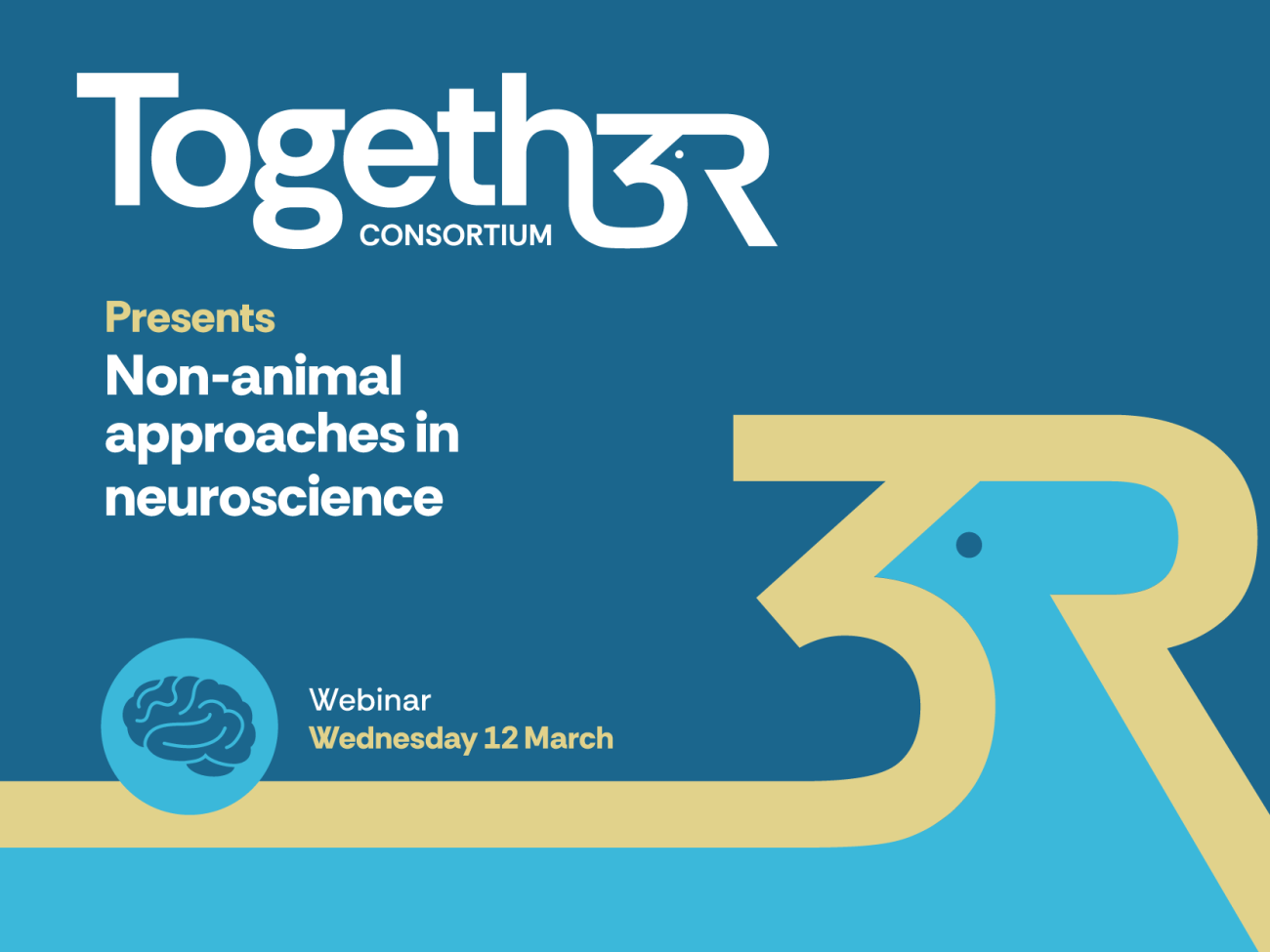Registration Details

The latest webinar series from The Togeth3R Consortium of European 3Rs centres will showcase non-animal approaches in research fields associated with high levels of animal use across four sessions. In each webinar we will hear from three researchers about the scientific benefits and replacement impacts of their models, before a panel discussion where you can ask your questions about developing and using non-animal methods in your field of research. Learn more about the series in our news item: Non-animal approaches across Europe.
This webinar explores the development and application of non-animal approaches in neuroscience, including using human neurons and organoids to better understand and treat Alzheimer’s disease and computational models of neuronal networks. The nervous system is the highest area of animal use for basic research in the UK and Europe with researchers often relying on animals to model the complexity of neuronal interactions and cognitive effects.
Programme
Wednesday 12 March, 13.00 – 14.20 (GMT)/14.00 – 15.20 (CET)
Prof Ivan Nalvarte – Karolinska Institutet, Sweden: Brain organoids to study Alzheimer’s disease – a comparative approach.
Prof Selina Wray – University College London, UK: Human neuronal models of Alzheimer’s disease for understanding disease mechanisms and developing novel therapies.
Prof Dmitri Rusakov and Dr Leonid Savtchenko – University College London, UK: BRAINCELL, a computational platform to explore in silico realistic 3D brain cells and their interactions.
- A Q&A panel discussion will be facilitated by Dr Elvira Hukasova from The Swedish 3Rs Center.
